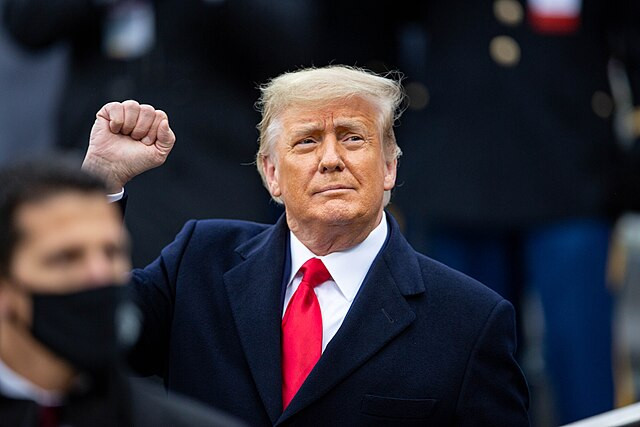Federal prosecutors, led by Special Counsel Jack Smith, have dropped all charges against President-elect Donald Trump in the 2020 election interference case, marking a significant development in the legal challenges that have trailed Trump throughout his political career. U.S. District Court Judge Tanya Chutkan granted the motion to dismiss the case on Monday, following Smith's filing earlier in the day. The dismissal reflects the evolving legal and constitutional dynamics brought about by Trump's recent election victory.
In the motion, Smith emphasized that the decision was not a reflection of the case's merits but rather an acknowledgment of the unique constitutional circumstances surrounding a sitting president-elect. "This outcome is not based on the merits or strength of the case against the defendant," Smith wrote. "The circumstances surrounding this trial have fundamentally changed."
The Supreme Court's recent ruling on presidential immunity played a pivotal role in the decision. The ruling extended broad protections to sitting and former presidents for actions considered part of their official duties. This left prosecutors with little room to maneuver in advancing their case. Smith further explained, "The Constitutional requirement that the president should not be unduly encumbered sets at odds two fundamental and compelling national interests."
The Department of Justice policy that prohibits the criminal prosecution of a sitting president compounded the challenges. Trump's election victory placed prosecutors in an unprecedented position, forcing them to contend with constitutional barriers while weighing the political implications of their decisions. Legal analysts have described the situation as a legal deadlock made inevitable by Trump's return to the White House.
The Trump camp wasted no time in celebrating the dismissal, portraying it as a long-awaited triumph against what they have consistently characterized as politically motivated investigations. Steven Cheung, a spokesperson for Trump, hailed the decision as "a major victory for the rule of law." Trump himself took to Truth Social to voice his satisfaction, stating, "These cases, like all of the other cases I have been forced to go through, are empty and lawless, and should never have been brought."
In a related development, Smith also dropped his appeal of the dismissal of the federal classified documents case against Trump. Although the prosecution of Trump's co-defendants in that case will continue, the decision underscores the broader retreat of federal legal challenges against the president-elect. This marks the conclusion of two of the most significant cases that once loomed over Trump's return to the political arena.
The dismissal of the election interference case caps off years of intense legal scrutiny of Trump. The charges, initially filed in August 2023, included conspiracy to defraud the United States and obstruction of an official proceeding. These allegations, along with a separate indictment for mishandling classified documents, had been at the forefront of Trump's legal battles since he launched his third presidential campaign in 2022.
Despite the dismissal of federal charges, Trump's legal troubles are not entirely behind him. State-level cases, including an election interference indictment in Georgia and a criminal conviction in New York, remain unresolved. However, analysts suggest that these cases may face significant hurdles due to Trump's presidential immunity and his ability to influence prosecutorial priorities as the nation's leader.
Smith's decision to end federal prosecutions reflects the broader political shift triggered by Trump's electoral victory. The special counsel's office spent more than a year building its cases, conducting hundreds of interviews and issuing numerous subpoenas. Yet the combination of legal setbacks and Trump's political resurgence effectively neutralized these efforts, leaving critics and supporters alike to debate the implications of the decision.
The Justice Department's handling of Trump's legal challenges has drawn criticism from both sides of the political spectrum. Some have accused the Biden administration of acting too slowly, while others have argued that the cases were politically motivated and lacked substantive legal grounding. These criticisms underscore the polarizing nature of the investigations and their outcomes.
With federal cases now dismissed, Trump is set to focus on his agenda as he prepares to assume office in January. His team has framed the dismissals as an opportunity to move forward and unite the country. "The American people and President Trump want an immediate end to the political weaponization of our justice system," Cheung stated, adding, "We look forward to uniting our country."






